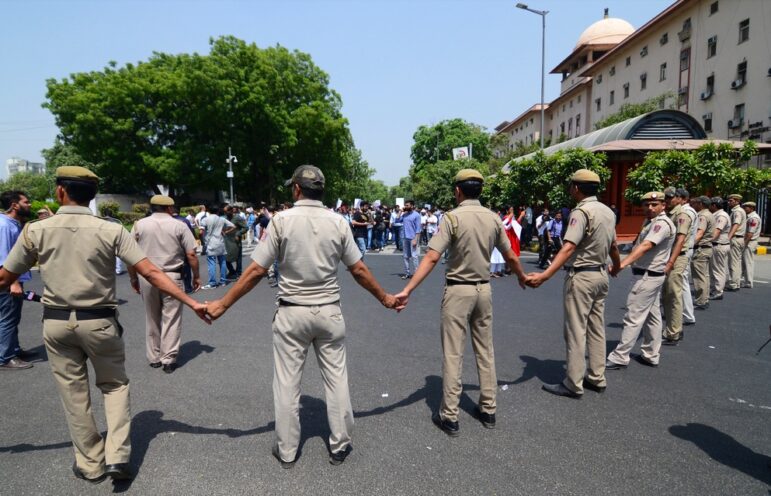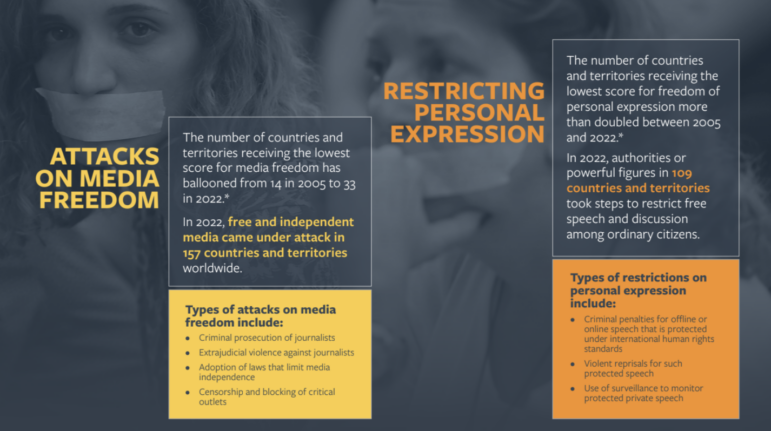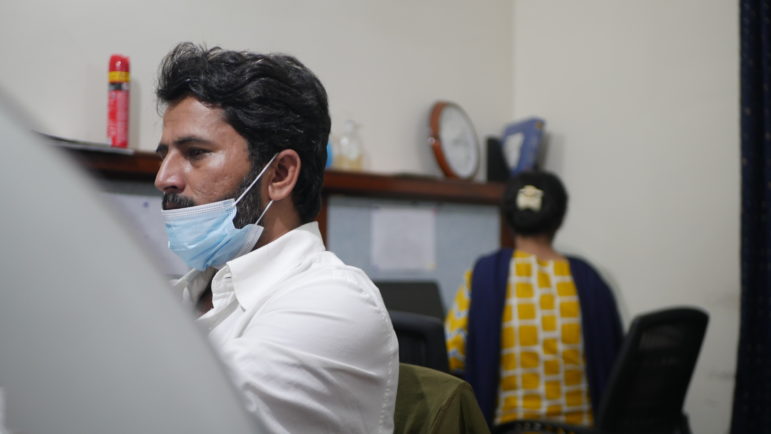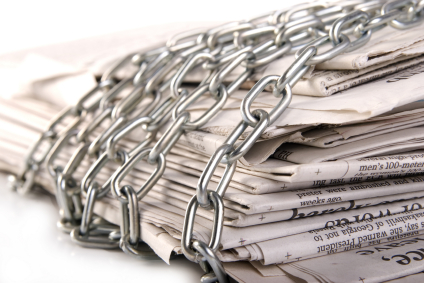

Propaganda & Media Freedom
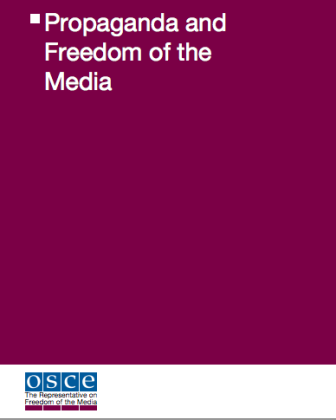 Editors’s Note: We’re pleased to run this excerpt from the recent report, Propaganda and Freedom of the Media, by the Office of The Representative on Freedom of the Media at the Organization for Security and Co-operation in Europe. The OSCE’s media freedom office, run by Dunja Mijatović, is an important ally in protecting the press and pushing back against the assault on independent media within many of OSCE’s 57 member states.
Editors’s Note: We’re pleased to run this excerpt from the recent report, Propaganda and Freedom of the Media, by the Office of The Representative on Freedom of the Media at the Organization for Security and Co-operation in Europe. The OSCE’s media freedom office, run by Dunja Mijatović, is an important ally in protecting the press and pushing back against the assault on independent media within many of OSCE’s 57 member states.
“These are trying times,” Mijatović said at the November 26 roll out of the report, during which she branded propaganda “an ugly scar on the face of modern journalism” and called on governments “to get out of the news business.” She noted that “Recent events across our region are fraying our nerves and testing our resolve. It is exactly in times like these that we need to preserve our values, preserve our freedoms.”
Here are the report’s Conclusions and Recommendations:
Today’s world is more interconnected – culturally and economically – than ever. Real transborder dissemination of information is made possible due to modern technologies; international travel is affordable for many. Under these conditions, propaganda for war and hatred is effective only in environments where governments control media and tacitly support hate speech.
A resilient, free media system is an antidote to hatred. No major private media company can, by itself, dominate the minds of modern men and women with the narrative of destruction. Self- and co-regulatory bodies in the media field may provide for an early warning in this respect. On the contrary, in a media system where the governmental broadcasters dominate the field and attempt to control the minds of the population through the typical set of “suppression, distortion, diversion and fabrication” the menace is real.
War propaganda can be sustained in the media only when and where the government does not act against it. The silence of state prosecutors and courts on war propaganda, harassment by the law-enforcement agencies of civil society critical of such policy, political attempts to isolate oppositional voices can lead to its success, at least in the short term.
If enforced in a judicial manner that is compliant with the rule of law, prohibiting propaganda for war and hatred assists and does not restrict free expression. Clear-cut definitions of the crimes and a solid basis in normative acts are needed. In practice, this is not the case. Courts struggle in their analysis of propaganda, hatred, incitement and war.
There is no logic in submitting a ban on propaganda of war and hatred to international norms on freedom of expression and freedom of the media. First, such propaganda is not a human right while its ban serves the human right to life and non-discrimination. International standards on freedom of speech take into account the damage that may be involved in using this freedom inasmuch as the ban on propaganda of war and hatred is called to prevent death and discrimination against humans. Second, an effective introduction of this ban is a duty of governments, while some other limitations of free expression are just permissible under national law. Finally, the right to free speech is not designed to call for aggression, to spread hateful rhetoric that serves discrimination, enmity or violence.
“The gravest of man-made calamities to accost our world over the centuries – the Inquisition, the slave trade, the Holocaust, the Soviet Union Gulag, the genocides in Cambodia or Rwanda – not only involved but actually required a totalizing control of expression, opinion and, at times, even conscience… Hatred needs and is fed by censorship, which, in turn, is needed to nurture incitement to the actual commission of atrocity crimes. The lesson is clear: In our efforts to prevent mass atrocities, the free flow of information and freedom of expression are ultimately are our key allies – not our enemies.”
While the legal mechanisms to comply with Article 20 of the ICCPR remain important, legislation is only part of a larger toolbox to respond to the challenges of propaganda. This toolbox contains the following additional instruments:
1) As propaganda is especially dangerous when it dominates the public sphere and limits access to information, thereby preventing individuals from expressing and forming opinions and ideas, it is crucial to enforce media pluralism as an effective response that creates and strengthens a culture of peace, tolerance and mutual respect. Unhindered development of new technologies including digital broadcasting, mobile communications, online media and social networks—should enable vast enhancement in the dissemination of diverse information.
2) Governments and political leaders should refrain from funding and using propaganda, especially when propaganda may lead to intolerance, discriminatory stereotyping or may incite war, violence or hostility. This includes steps to abolish the media run by the government or its proxies, abstain from sponsoring online trolls or engage in other covert media operations.
3) Public service media with strong professional standards should be strongly supported in their independent, sustainable, and accessible activity. An opposite line of action means corrupting the profession of journalism.
4) Propaganda should be generally uncovered and condemned by governments, civil society and international organizations as inappropriate speech in a democratic world and in the profession of journalism. Governments and political leaders have a crucial role to play in speaking out decisively and promptly against instances of propaganda for war, of intolerant expression and instances of hate speech in the media.
5) The independence of the judiciary and media regulators should be guaranteed in law and in policy so that they do not serve political interests or be used to exploit restrictions on propaganda of hatred for curtailing dissenting voices and freedom of expression.
6) The root causes of propaganda for war and hatred should be dealt with a broad set of policy measures, for example in the areas of international and intercultural dialogue, such as the dialogue among journalists, intellectuals, and promoting media education and democracy based on peace, freedom of expression, pluralism and diversity. Citizens should be encouraged to express a range of views and information that embrace a healthy dialogue and debate. In addition, positive traditional values, compatible with internationally recognized human rights norms and standards, can also contribute to countering incitement to hatred and war.
7) National and international human rights and media freedom mechanisms, specialized self- and co-regulatory bodies, professional organizations and independent monitoring institutions should be enabled to foster social dialogue in a vibrant civil society and also address complaints about incidents of hateful propaganda. There is a need to boost the important work of regional human rights and media freedom watchdogs, such as the OSCE Representative on Freedom of the Media, as they advise and support national policies in this regard. They should be enabled to facilitate dialogue to foster peace and intercultural understanding and learning.
8) As only an informed, media-literate population can make rational and not emotional choices, strengthening educational programmes on media literacy and Internet literacy may dampen the flames that fire propagandists.
Governments should invest in such programmes, as well as facilitate media studies from the high school level.
9) Media self-regulation, where it is effective, remains the most appropriate way to address professional issues. Through self-regulation the media exercise their moral and social responsibility, including counter-action to propaganda of hatred and discrimination. Ethical codes and self- and co-regulatory instruments should ensure that cases of propaganda are brought to the attention of the public.
They must become a barrier to the negative stereotypes of individuals and groups being furthered by the media, raising awareness of the harm caused by discrimination. Journalist organizations, self-regulatory bodies and the owners and publishers of media outlets have the duty to take a serious look at the content they are producing. Propaganda does a disservice to all credible, ethical journalists who have fought for, and, in some cases, given their lives to produce real, honest journalism.
Excerpted with permission from Propaganda and Freedom of the Media, published by the OSCE Representative on Freedom of the Media at the Organization for Security and Co-operation in Europe. http://www.osce.org/node/106281
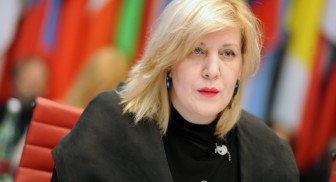 Dunja Mijatović serves as OSCE Representative on Freedom of the Media, a watchdog to help ensure that all 57 OSCE member states abide by their commitments to freedom of expression and free media. Twitter: @OSCE_RFoM.
Dunja Mijatović serves as OSCE Representative on Freedom of the Media, a watchdog to help ensure that all 57 OSCE member states abide by their commitments to freedom of expression and free media. Twitter: @OSCE_RFoM.






